Search
Search Results
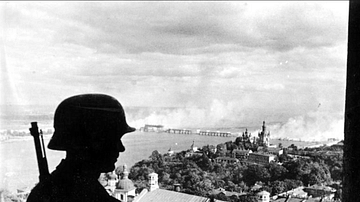
Image
German Soldier, Kiev, 1941
A photograph showing a German soldier in Kiev, Ukraine after the battle of Kiev in 1941. The battle was a major Axis victory during Operation Barbarossa in the Second World War (1939-45). (German Federal Archives)

Image
Modern-Day Cheyenne Dog Soldier
Image of a modern-day Cheyenne Dog Soldier at a Native American Powwow in Milwaukee, Wisconsin, 2008. The Dog Soldiers are one of the military societies of the Cheyenne nation.
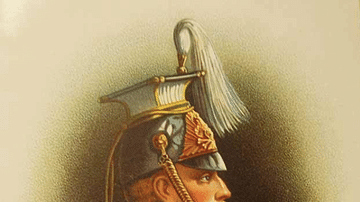
Image
Soldier Christmas Card, 1887
A Christmas card dating to c. 1887 showing a soldier. Drawn by Harry Payne, military themes were popular with those who sent cards to family members in the armed services across the British empire. (Victoria and Albert Museum, London) Orignal...
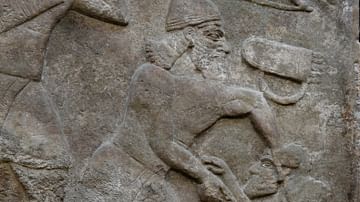
Image
Assyrian Soldier Kills His Enemy
Alabaster bas-relief showing an Assytian soldier killing his enemy. Neo-Assyrian Period, 865-860 BCE. Detail of Panel 8 (top), Room B, the North-Palace Palace, Nimrud, modern-day Iraq. (The British Museum, London)
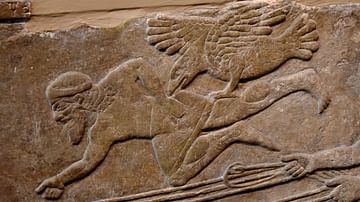
Image
Predator Bird Attacks a Soldier
Alabaster bas-relief showing a vulture attacking a dead enemy soldier, who was killed by the Assyrian army. Neo-Assyrian Period, 865-860 BCE. Detail of Panel 3 (bottom), Room B, the North-Palace Palace, Nimrud, modern-day Iraq. (The British...
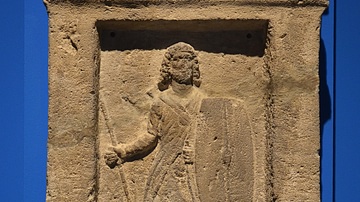
Image
Bosporan Soldier
Grave stele of Staphilos, son of Glaukias, from the Bosporan Kingdom. It depicts a soldier with the traditional Bosporan long hair and beard, and Scythian costume. It dates to the 2nd century CE and comes from the Necropolis of Panticapaeum...

Image
Funerary Slab of Galatian Soldier at Rest
Limestone funerary slab depicting a Galatian soldier being handed a drinking cup by a serving boy, Alexandria, late 3rd century BCE.
Metropolitan Museum of Art, New York.
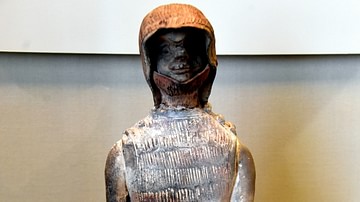
Image
Northern Wei Figure of a Foreign Soldier
This painted pottery figure represents a foreign soldier and was made of a slipped and pigmented earthenware. It was found in a tomb. Northern Wei Dynasty, 386-534 CE. From North China. (The British Museum, London).

Definition
Roman Cavalry
Cavalry, although never replacing infantry as the mainstay of the Roman army, could provide useful cover on the flanks of armies, could be used as a shock tactic to cause disruption to enemy infantry formations, and could pursue an enemy...
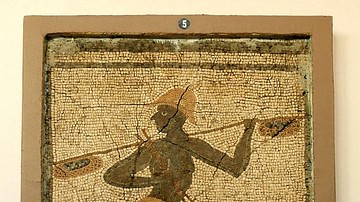
Article
The Roman Empire in West Africa
At its fullest extent, the Roman Empire stretched from around modern-day Aswan, Egypt at its southernmost point to Great Britain in the north but the influence of the Roman Empire went far beyond even the borders of its provinces as a result...